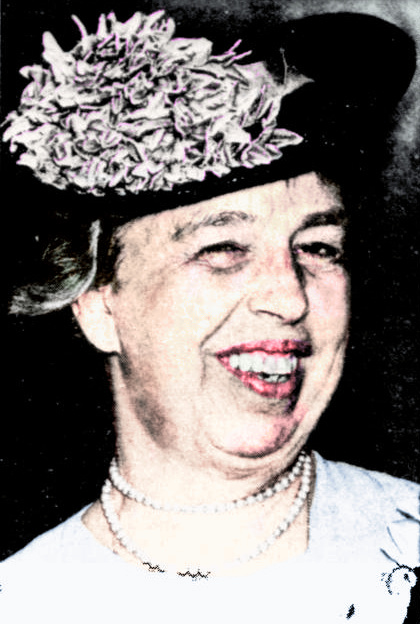
MY DAY
By Eleanor Roosevelt
January 1, 1942
Washington, Wednesday –
New Year’s Eve, and at midnight we shall be drinking a toast to the United States of America, with more troubled hearts than any of us have known in the past. Yet, we shall drink it with a greater determination that this coming year will see the dawn of victory. We shall affirm again our beliefs, and determine to build a stronger United States to serve the rest of the world, as an example of what democracy can really mean to the people of a nation.
We shall wish, of course, to alleviate in every way we possibly can the hardships that are bound to come to any nation that has to put aside the civilian needs of the population and has concentrated primarily on its war needs. There will be plenty of work in some localities, less work in others. There will be a need for retraining workers to meet new types of occupation. There will be a need for moving people from places where they have lived for a long while, to other parts of the country.
All this means a great dislocation in the lives of human beings. One of the wishes which must be in all our hearts, is that each and every one of us may be able to vision the ultimate objective of liberty, which will make these sacrifices seem worthwhile.
When I was a little girl, my grandmother used to tell me that no New Year’s Eve was complete without a set of New Year’s resolutions. In those days, I used to decide not to eat too many sweets, and to be obedient to my elders and betters.
I wonder today whether there is some special resolution which all in this country should make. We could resolve to look for the contributions which all the other countries of the world can make in developing plans for more permanent peace, greater justice and economic opportunity for the future.
The English-speaking peoples will, probably, when peace first comes to this earth, have to bear a heavy burden. They must lighten that burden as quickly as possible, through the participation of all the free countries in this hemisphere. Liberated people in other parts of the world must join with us as soon as they can, if we are to have a program which expresses the aspirations and hopes now hidden in the hearts of people throughout the world.